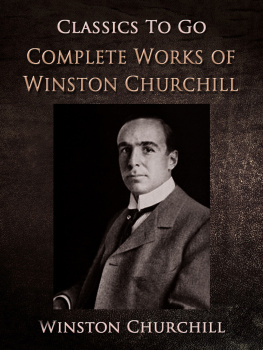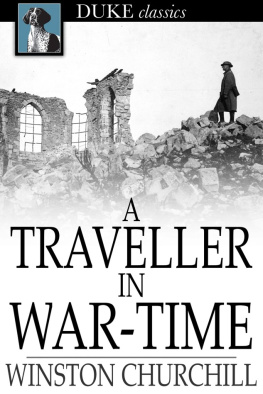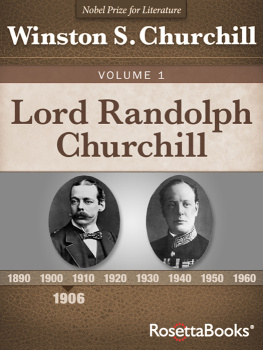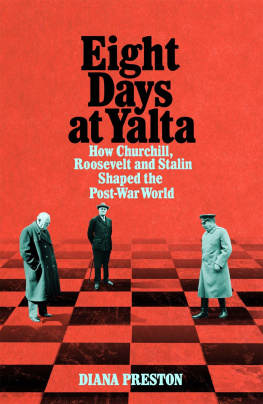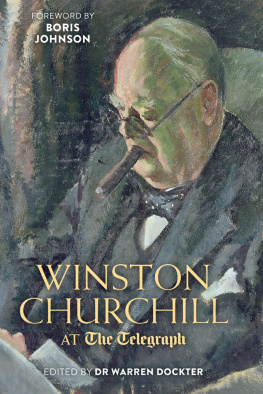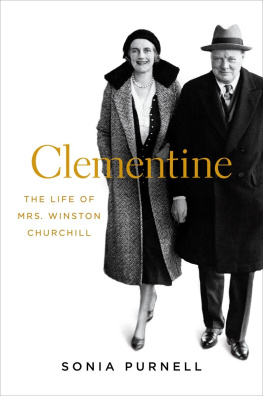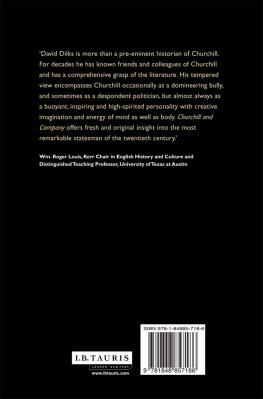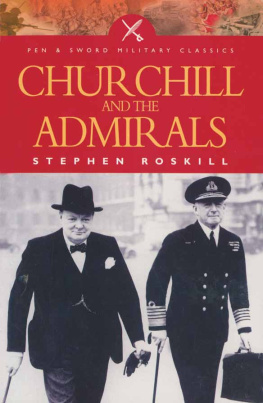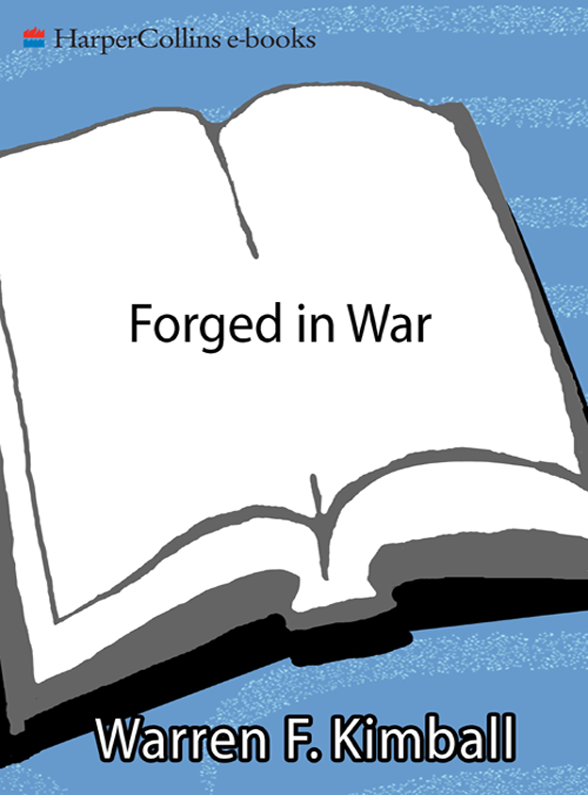The prerogative of making war is a very sublime one, its exercise is so utterly unscrutable. A British war is like an earthquake; it occurs, and when we have recovered our presence of mind we sit down and ask how it came to pass and what were the first indications. Whether in earthquake or in war the question is equally fruitless. Doubtless there are those who know it, but the British public do not, and never will; nor to the end of time will any historian know it, for historians know about as much of real cause and consequence as postmen, porters and footmen do of their masters private affairs.
The Times of London, editorial, October 14, 1856
A democracy is peace-loving. It does not like to go to war. But I sometimes wonder whether in this respect a democracy is not uncomfortably similar to one of those prehistoric monsters you practically have to whack his tail off to make him aware that his interests are being disturbed; but once he grasps this, he lays about him with such blind determination that he not only destroys his adversary but largely wrecks his native habitat.
G EORGE C. K ENNAN , American Diplomacy, 19001950
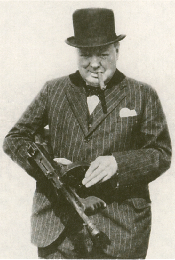
The pugnacious looking bastard
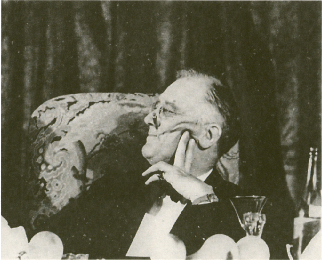
The seductive artist
CONTENTS
Chapter 1
1a: Churchill holding a submachine gun, inspection trip of home defenses in the north of England, July 1940. (Imperial War Museum, London)
1b: FDR at a Jackson Day Dinner, Mayflower Hotel, January 7, 1939. (T. McAvoy/Life magazine; copyright 1938 by Time Inc.)
Chapter 2
FDR, Churchill, and the Anglo-American Chiefs of Staff, aboard HMS Prince of Wales, Placentia Bay, Newfoundland, August 10, 1941. (FDR Library)
Chapter 3
Churchill and FDR, portico of the White House, Washington, D.C., December 22, 1941. (FDR Library)
Chapter 4
Joseph Stalin and FDR, Teheran, Iran, November 29, 1943. (FDR Library)
Chapter 5
FDR and Churchill, viewing the pyramids outside Cairo, Egypt, November 23, 1943. (FDR Library)
Chapter 6
Churchill and FDR, Casablanca, Morocco, January 22, 1943. (FDR Library)
Chapter 7
FDR and Churchill, White House Rose Garden, May 24, 1943. (FDR Library)
Chapter 8
Stalin, FDR, and Churchill, Teheran, Iran, November 29, 1943. (FDR Library)
Chapter 9
Churchill, FDR, and Stalin, Yalta, USSR, February 9, 1945. (FDR Library)
Appendix
App. a: Churchill at the Soviet Embassy, Kensington Gardens, London, May 9, 1945. (Imperial War Museum, London)
App. b: FDR, Yalta, USSR, February 9, 1945. (FDR Library)
CHAPTER 1
The Players:
A Pugnacious Looking
Bastard and This Artist,
This Seducer
Never were there two less likely-looking warriors. Winston Spencer Churchill was, to be candid, short and fat; very pink and cuddly, commented one journalists wife upon her first close encounter. His round red cheeks invariably prompted the description cherubic, though nothing could be further from the truth. He waddled rather than walked and lectured rather than listened, talking endlessly about everything, the opposite of the virile, strong, silent leader that fiction idealized and John Wayne and Hollywood popularized. Much of his working time was spent lying abed, and when he did get up, it was often to prance around in soft slippers and pink bathrobe or his siren suit (designed to be pulled on easily in the event of an air raid), getups that brought derision from more than a few diarists. A marvellous garment [Churchills dressing gown], rather like Josephs many-coloured robe, General Alan Brooke, the chief of the Imperial General Staff, acidly commented, going on to describe a typical evenings work with the prime minister:
Finally at 2:15 A.M. he suggested we should proceed to the hall to have some sandwiches, and I hoped this might at least mean bed. But, no! We went on till ten to three before he made a move for bed. He had the gramophone turned on, and in the many-coloured dressing gown, with a sandwich in one hand and watercress in the other, he trotted round and round the hall, giving occasional little skips to the tune of the gramophone.
On each lap near the fireplace he stopped to release some priceless quotation or thought. For instance he quoted a saying that a mans life is similar to a walk down a long passage with closed windows on either side. As you reach each window, an unknown hand opens it and the light it lets in only increases by contrast the darkness at the end of the passage.
That image of English eccentricity must be balanced against the description of Churchill from a soldier in the ranks during a formal inspection: Hes a pugnacious looking bastard. But as Adolf Hitler found out, it was more than just looks.
A search committee working in 1939, or even 1940, to hire a wartime leader would have carefully examined Winston Churchills rsum. After all, he had attended the British military academy at Sandhurst, had been first lord of the admiralty during the Great War of 191418, and had called stridently for Britain to rearm as Germany became more belligerent in the 1930s.
But those assets were more than offset by performance. Whatever Churchills fascination with things military, his academic performance at Sandhurst was undistinguished, and his military service uneventful and brief. His mother, the former Jennie Jerome and an American debutante from Baltimore when she married Randolph Churchill, once cautioned her son not to come home from India on leave early in his short army career. Though her real motive was to save moneyalways in short supply for a woman with champagne tastesshe hit on a truth when she warned young Winston: They will say & with some reason that you cant stick to anything. You have only been out six months.
Nor were his new colleagues in the Conservative party happy with him. During the 1930s he had infuriated Tory leaders by condemning even the very mild steps toward home rule in India they had proposed. His method and style of predicting confrontation with Germany had angered and alienated many of the very people upon whom any prime minister would have to depend. By the winter of 193738 his propensity for self-inflicted injuries had left his reputation in shreds.
Whatever Churchills dramatic personal style, the search committee, initially intrigued, would have looked suspiciously at the candidates preference for knights in shining armor and cavalry chargesdespite his equal fascination with aircraft and technology. It would have shaken its collective head at his lack of political correctness and then slipped Churchills application into the stack marked Routine Rejection (just as a majority of Conservative party MPs would have done in May 1940 had they voted on a leader to replace then Prime Minister Neville Chamberlain).







